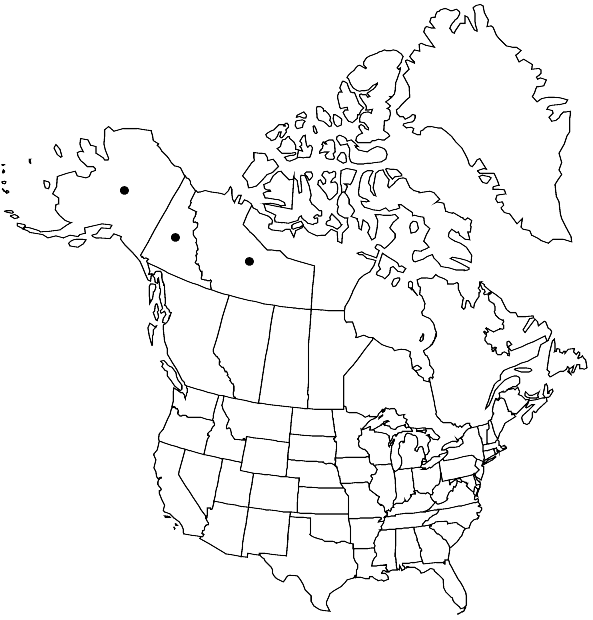Encalypta vittiana
Bryologist 82: 369, figs. 1–10. 1979,.
Stems 2–10 mm, central strand present, weakly differentiated, cells small. Leaves oblong to lingulate or narrowly spathulate, 1.5–2.5 mm, apices obtuse, apiculate, margins plane; costa excurrent, smooth, narrow, shorter than lamina; laminal cells 12–20 µm; basal cells rectangular, 20–60 µm, smooth; basal marginal cells weakly differentiated, longer than laminal cells, in 3–5 rows. Specialized asexual reproduction absent. Seta 4–7 mm, smooth, reddish. Capsule emergent, inclined, cylindric, 1.5–2.5 mm, strongly ribbed, brownish yellow to red, exothecial cells linear, walls thickened; peristome double, rudiments of exostome present as short nubs, teeth dark red, lanceolate, 0.25 mm, papillose, incurved when wet, erect when dry; operculum 1 mm. Calyptra 2.5–5 mm, fringed at base, smooth. Spores 35–37 µm, warty, brown.
Habitat: Protected sites on calcareous soils or rock in mesic tundra
Distribution

N.W.T., Yukon, Alaska.
Discussion
Encalypta vittiana is similar to E. rhaptocarpa but is distinct in having dark red furrows on the capsule and a fringed calyptra. Encalypta rhaptocarpa has brown to brown-red capsules and erose calyptra bases. The two species overlap in their ranges.
Selected References
None.